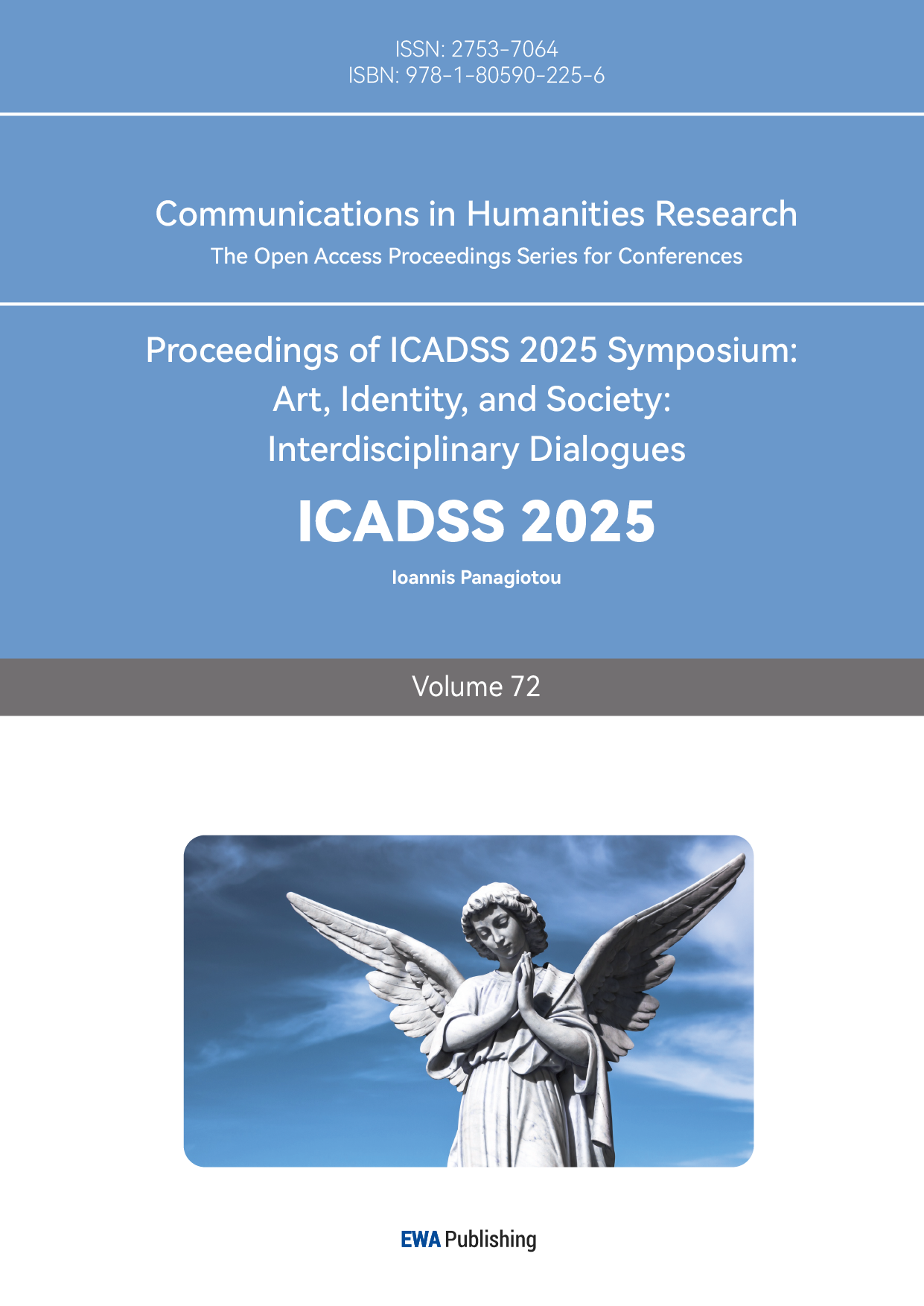References
[1]. Chen, Y. Z. (2024). On the reasons for the evolution of the story of "The Orphan of Zhao" from Zuo Zhuan and Records of the Grand Historian: House of Zhao. Popular Literature and Art, (19), 114–116. https: //doi.org/10.20112/j.cnki.ISSN1007-5828.2024.19.038
[2]. Tan, J. (2017). Female images and their modern interpretations in the story of "The Orphan of Zhao" (Master’s thesis). Wuhan University.
[3]. Xiang, Z. Q. (2021). A study of female images in The Orphan of Zhao and The Chinese Orphan. Taste & Classics, (22), 22–25.
[4]. Li, X. (2022). A comparative study of The Orphan of Zhao and The Chinese Orphan under the theory of cross-cultural adaptation (Master’s thesis). Xi’an University of Architecture and Technology. https: //doi.org/10.27393/d.cnki.gxazu.2022.001499
[5]. Zhong, X. X. (2017). From The Orphan of Zhao to The Chinese Orphan: How female roles influence history — Also on the influence of Chinese literature on French sinology. Chinese Literature Review, (00), 337–349.
[6]. Peng, R. H. (2017). On Voltaire’s female consciousness from the conflict of Idamé’s four identities. In Xiamen University School of Foreign Languages (Ed.), Proceedings of the 2017 Xiamen Graduate Forum on Foreign Language and Literature (pp. 465–474). Xiamen University School of Foreign Languages.
[7]. Fan, X. H. (2010). The Orphan of Zhao and The Chinese Orphan. Shanghai: Shanghai Ancient Books Publishing House.
[8]. Zhang, T. (2020). On the fusion of Chinese and Western cultures from the perspective of female roles in different versions of The Orphan of Zhao. Art Sea, (09), 10–13.
[9]. Tang, G. (2019). The contradictory philosophy in Voltaire’s tragedy The Chinese Orphan. Foreign Languages and Literature, 35(04), 71–77.
[10]. Zhao, W. Y. (2019). Study on Confucius and the Pre-Qin Confucian view of fate. China Ethnic Expo, (02), 85–87.
[11]. Wu, G. G. (2003). On rationality in Pre-Qin Confucianism. Jinyang Journal, (01), 39–42. https: //doi.org/10.16392/j.cnki.14-1057/c.2003.01.010
[12]. Lv, X. Y. (2012). Reshaping the classics: harmony in diversity (Master’s thesis). Shanghai Conservatory of Music.
[13]. Qian, L. S. (1997). Voltaire and Chinese culture. Social Sciences Front, (04), 80–89.



